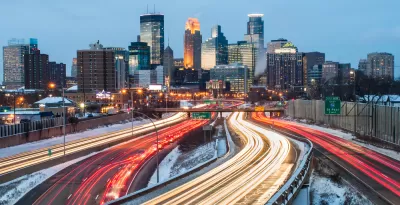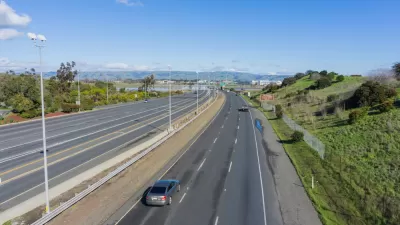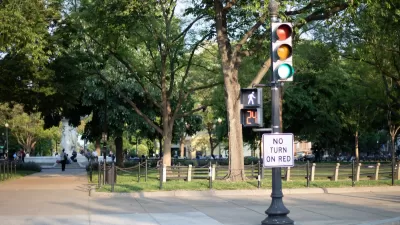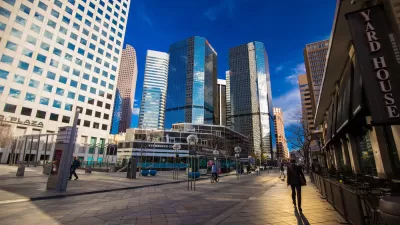Minnesota is the latest state to enact fines for a law already on the books requiring slow drivers to merge right. As such laws gain popularity, it's time again to consider the sometimes counterintuitive facts of traffic safety.

"Slower motorists in Minnesota best stick to the right lane — or face a possible fine come Aug. 1," reports Janet Moore.
The Minnesota State Legislature approved a law in May that makes it illegal for drivers to liner in the farthest left lane, also known as the passing lane or the fast lane.
While every state has a law requiring slower vehicles to move to the right lane, only about a dozen have full-fledged edicts that involve a financial penalty, according to the National Conference of State Legislatures. Fines vary across the country, from as little as $20 to more than $250.
Moore's description checks out with previous coverage of passing lane cloggers, and a trend toward increasingly punitive response to the practice, picked up by Planetizen in both 2014 and 2017. The article from 2014, for instance, digs into the complicated question of whether making room for drivers to speed in the left lane is actually safer than allowing slow drivers to clog the lane, thus force faster drivers to slow and merge.
One big remaining question for Minnesota, now that it's passed the new law, is how to enforce the standard. "The law doesn’t quantify how slow a vehicle must be traveling in the left lane in order to be cited," according to Moore. "It just states, 'a person must move out of the left-most lane to allow another vehicle to pass' when practical."
FULL STORY: New Minnesota law to fine slower drivers in the left lane

Alabama: Trump Terminates Settlements for Black Communities Harmed By Raw Sewage
Trump deemed the landmark civil rights agreement “illegal DEI and environmental justice policy.”

Study: Maui’s Plan to Convert Vacation Rentals to Long-Term Housing Could Cause Nearly $1 Billion Economic Loss
The plan would reduce visitor accommodation by 25% resulting in 1,900 jobs lost.

Planetizen Federal Action Tracker
A weekly monitor of how Trump’s orders and actions are impacting planners and planning in America.

Wind Energy on the Rise Despite Federal Policy Reversal
The Trump administration is revoking federal support for renewable energy, but demand for new projects continues unabated.

Passengers Flock to Caltrain After Electrification
The new electric trains are running faster and more reliably, leading to strong ridership growth on the Bay Area rail system.

Texas Churches Rally Behind ‘Yes in God’s Back Yard’ Legislation
Religious leaders want the state to reduce zoning regulations to streamline leasing church-owned land to housing developers.
Urban Design for Planners 1: Software Tools
This six-course series explores essential urban design concepts using open source software and equips planners with the tools they need to participate fully in the urban design process.
Planning for Universal Design
Learn the tools for implementing Universal Design in planning regulations.
Caltrans
Smith Gee Studio
Institute for Housing and Urban Development Studies (IHS)
City of Grandview
Harvard GSD Executive Education
Toledo-Lucas County Plan Commissions
Salt Lake City
NYU Wagner Graduate School of Public Service





























